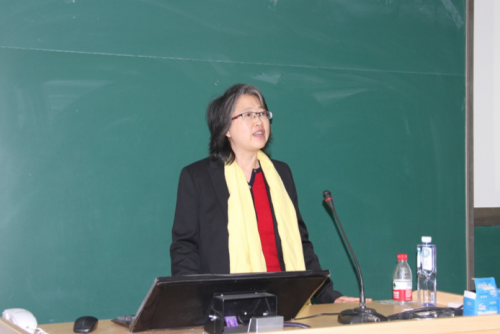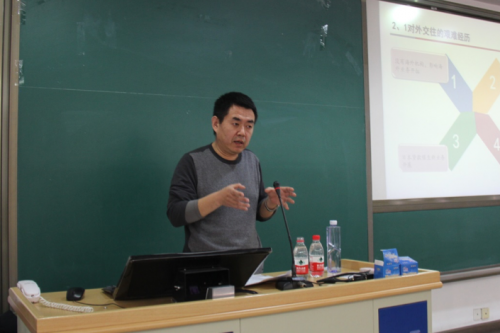Tao Xiang International Finance Lectures (No. 12): Risk Management of Multinational Banking-Chinese Banking Industry under the Belt and Road Initiative
2018-03-15 IMI Starting from a practical point of view, Yu Yong talked about the status quo of overseas development of Chinese banking industry under the “Belt and Road” Initiative. On one hand, a large number of state-owned banks are going abroad, and state-owned foreign assets have reached 700 million U.S. dollars. On the other hand, however, it faces challenges such as exchange rate risk, bank bad debt risk etc. It has both losses and successful experiences, such as Hong Kong banks’ success in protection against risks in 1989 and 1998. As a result, banks' flexible adjustments in cross-border business have become a necessary quality in the face of risks. Cross-border development requires banks not only to recognize the importance of expanding overseas business and setting up branches, but also adjust their strategies based on policies and cultural factors. They should start with a profit motive and promote cooperation actively.
Starting from a practical point of view, Yu Yong talked about the status quo of overseas development of Chinese banking industry under the “Belt and Road” Initiative. On one hand, a large number of state-owned banks are going abroad, and state-owned foreign assets have reached 700 million U.S. dollars. On the other hand, however, it faces challenges such as exchange rate risk, bank bad debt risk etc. It has both losses and successful experiences, such as Hong Kong banks’ success in protection against risks in 1989 and 1998. As a result, banks' flexible adjustments in cross-border business have become a necessary quality in the face of risks. Cross-border development requires banks not only to recognize the importance of expanding overseas business and setting up branches, but also adjust their strategies based on policies and cultural factors. They should start with a profit motive and promote cooperation actively.
 Yu Yong later proposed that Chinese banks’ risk supervision in the context of the “Belt and Road” Initiative faces completely different challenges at domestic and cross-border levels. First of all, it is necessary for the banks to increase their influence in the international market. Secondly, they should improve their international management level. This requires the banking regulatory system to make adjustments to cross-border business and improve the effectiveness of communication with international standards. In the meantime, Yu Yong pointed out the importance of formal business and put forward expectations (“tolerance” “introspection” and “gratitude”) for future bank practitioners. Finally, he pointed out that with the rapid development of artificial intelligence and instant messaging, nowadays the competitive situation facing the Chinese banking industry cannot be compared with that of the past. On one hand, the improvement of the status of Chinese banking industry has made it necessary for banks to improve their comprehensive service capabilities in cross-border operations. On the other hand, digital security in the era of big data is a top priority in avoiding risks.
In the end, the participants expressed their opinions on the content of the lecture, and discussed the interdisciplinary knowledge among finance, banking, politics, and philosophy.
Yu Yong later proposed that Chinese banks’ risk supervision in the context of the “Belt and Road” Initiative faces completely different challenges at domestic and cross-border levels. First of all, it is necessary for the banks to increase their influence in the international market. Secondly, they should improve their international management level. This requires the banking regulatory system to make adjustments to cross-border business and improve the effectiveness of communication with international standards. In the meantime, Yu Yong pointed out the importance of formal business and put forward expectations (“tolerance” “introspection” and “gratitude”) for future bank practitioners. Finally, he pointed out that with the rapid development of artificial intelligence and instant messaging, nowadays the competitive situation facing the Chinese banking industry cannot be compared with that of the past. On one hand, the improvement of the status of Chinese banking industry has made it necessary for banks to improve their comprehensive service capabilities in cross-border operations. On the other hand, digital security in the era of big data is a top priority in avoiding risks.
In the end, the participants expressed their opinions on the content of the lecture, and discussed the interdisciplinary knowledge among finance, banking, politics, and philosophy.
